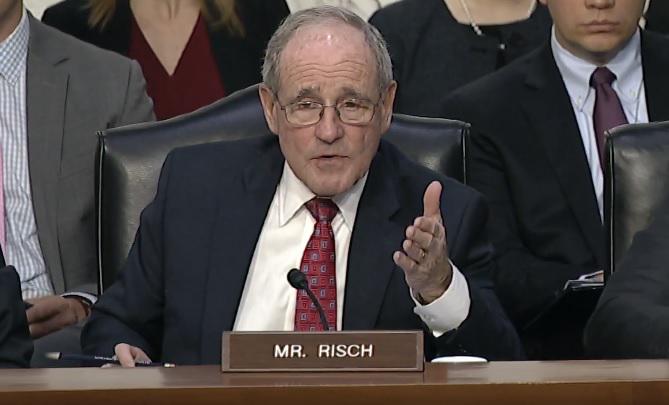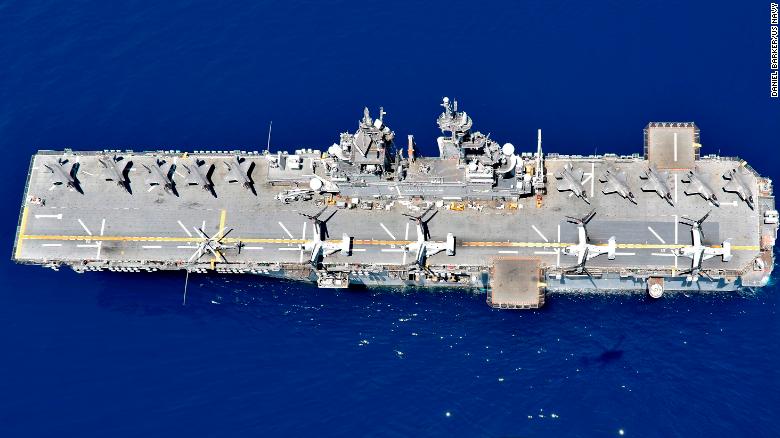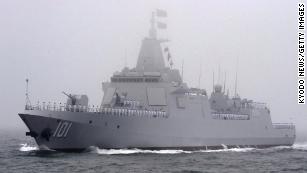U.S. Senators Press Ahead With Hong Kong Bill
After House passage, legislation awaits action in SenateBy Daniel Flatley and Dandan Li

Hong Kong Bill Will Pass in the Senate, Says Rep. Chris Smith
Republican senators said Wednesday they want to move quickly on legislation to support pro-democracy protesters in Hong Kong despite a "threat" of retaliation from China.
“Hong Kong is a high priority for me,” said GOP Senator Jim Risch, chairman of the Foreign Relations Committee.
“We’re going to move on it as rapidly as we can.”

Senator Jim Risch
Senator Roy Blunt, a member of the Senate GOP leadership, said there haven’t been any discussions about the timing for a vote on Hong Kong legislation similar to a measure that passed the House Tuesday.

Senator Jim Risch
Senator Roy Blunt, a member of the Senate GOP leadership, said there haven’t been any discussions about the timing for a vote on Hong Kong legislation similar to a measure that passed the House Tuesday.
That bill would subject the city’s special U.S. trading status to annual reviews and provides for sanctions against officials deemed responsible for undermining its “fundamental freedoms and autonomy.”
There is broad backing in both parties in Congress to show support for the protesters and punish China for any crackdown.
There is broad backing in both parties in Congress to show support for the protesters and punish China for any crackdown.
The White House declined to comment on whether Trump would sign the Hong Kong legislation, but there are enough votes in the House to override a veto and no significant opposition in the Senate.
The next step will be up to Senate Majority Leader Mitch McConnell who’ll set the schedule for a vote, and he’s being pressed by his Republican colleagues.
The next step will be up to Senate Majority Leader Mitch McConnell who’ll set the schedule for a vote, and he’s being pressed by his Republican colleagues.
“I think we’re going to get it up on the floor here fairly soon,” Florida Republican Senator Marco Rubio, a China critic, told reporters.
South Dakota Senator John Thune, another member of Republican leadership, said that while he hasn’t looked closely at the four bills the House passed Tuesday, there are a number of senators “interested in making a strong statement on Hong Kong.”
Maryland Senator Ben Cardin, a Democrat on the Foreign Relations Committee, said the main House bill, the Hong Kong Human Rights and Democracy Act, has deep bipartisan support, but there might be some Republicans who object to the bill being passed by unanimous consent without a floor vote.
Cardin said the fact that the House passed their four bills separately, rather than bundling them together, means the Hong Kong Human Rights and Democracy Act has a better chance of getting a vote in the Senate.

Demonstrators wave U.S. flags during a rally in support of the Hong Kong Human Rights and Democracy Act, Oct. 14.
Chinese Ministry of Foreign Affairs spokesman Geng Shuang warned American lawmakers to stop "meddling" in China’s internal affairs.
South Dakota Senator John Thune, another member of Republican leadership, said that while he hasn’t looked closely at the four bills the House passed Tuesday, there are a number of senators “interested in making a strong statement on Hong Kong.”
Maryland Senator Ben Cardin, a Democrat on the Foreign Relations Committee, said the main House bill, the Hong Kong Human Rights and Democracy Act, has deep bipartisan support, but there might be some Republicans who object to the bill being passed by unanimous consent without a floor vote.
Cardin said the fact that the House passed their four bills separately, rather than bundling them together, means the Hong Kong Human Rights and Democracy Act has a better chance of getting a vote in the Senate.

Demonstrators wave U.S. flags during a rally in support of the Hong Kong Human Rights and Democracy Act, Oct. 14.
Chinese Ministry of Foreign Affairs spokesman Geng Shuang warned American lawmakers to stop "meddling" in China’s internal affairs.
Both Trump and Chinese dictator Xi Jinping have so far prevented the international uproar over Hong Kong from scuttling their trade talks.
The two sides went ahead with negotiations and reached some broad agreements last week, even though the House vote was widely expected at the time.
A spokesman for the Hong Kong government “expressed regret” over the House action, which came hours before Chief Executive Carrie Lam addressed a raucous session of the Legislative Council.
She barely managed a few words before pro-democracy lawmakers forced her to stop talking.
She ended up delivering her annual policy address via video instead.
While the pro-democracy bloc only comprises about a third of lawmakers, Wednesday’s display showed they have the ability to shut down debate on major economic initiatives.
While the pro-democracy bloc only comprises about a third of lawmakers, Wednesday’s display showed they have the ability to shut down debate on major economic initiatives.
That spells even more trouble ahead for an economy sliding into recession as protests against Beijing’s grip over the city grow increasingly violent.
China’s retaliation threat against the U.S. roiled markets during Asian trading, at one point wiping out a 0.8% rally in the regional equity benchmark.
U.S. lawmakers have embraced the Hong Kong protesters’ cause as the yearlong trade war fuels American support for pushing back against China, and they have hosted Hong Kong’s pro-democracy activists on Capitol Hill in recent weeks.
China’s retaliation threat against the U.S. roiled markets during Asian trading, at one point wiping out a 0.8% rally in the regional equity benchmark.
U.S. lawmakers have embraced the Hong Kong protesters’ cause as the yearlong trade war fuels American support for pushing back against China, and they have hosted Hong Kong’s pro-democracy activists on Capitol Hill in recent weeks.
The National Basketball Association’s struggle to manage Chinese backlash against a Houston Rockets executive’s support for the movement has only focused wider attention on the debate.
On Tuesday, the House passed H.Res. 543, a resolution reaffirming the relationship between the U.S. and Hong Kong, condemning Chinese interference in the region and voicing support for protesters.
On Tuesday, the House passed H.Res. 543, a resolution reaffirming the relationship between the U.S. and Hong Kong, condemning Chinese interference in the region and voicing support for protesters.
Lawmakers also passed the Protect Hong Kong Act, H.R. 4270, which would halt the export to Hong Kong of crowd-control devices such as tear gas and rubber bullets.

Joshua Wong arrives to speak on Capitol Hill on Sept. 17.
Representative Chris Smith, a New Jersey Republican and a sponsor of the main Hong Kong bill, dismissed the threats from Beijing.
“Retaliation, that’s all they ever talk,” Smith told Bloomberg TV.

Joshua Wong arrives to speak on Capitol Hill on Sept. 17.
Representative Chris Smith, a New Jersey Republican and a sponsor of the main Hong Kong bill, dismissed the threats from Beijing.
“Retaliation, that’s all they ever talk,” Smith told Bloomberg TV.
“They try to browbeat and cower people, countries, presidents, prime ministers and the like all over in order to get them to back off. We believe that human rights are so elemental, and so in need of protection. And that’s why the students and the young people are out in the streets in Hong Kong virtually every day.”
The House also adopted a resolution by Foreign Affairs Committee Chairman Eliot Engel of New York and the panel’s top Republican, Michael McCaul of Texas, urging Canada to start U.S. extradition proceedings against Huawei Technologies Co. executive Meng Wanzhou.
The House also adopted a resolution by Foreign Affairs Committee Chairman Eliot Engel of New York and the panel’s top Republican, Michael McCaul of Texas, urging Canada to start U.S. extradition proceedings against Huawei Technologies Co. executive Meng Wanzhou.
The resolution, H.Res. 521, also calls for the release of two Canadians detained in China and due process for a third sentenced to death for drug smuggling.

Ted Cruz

Ted Cruz





/arc-anglerfish-arc2-prod-mco.s3.amazonaws.com/public/M3ZGXKWZS5HVTCUSJJODH4UJI4.jpg)












